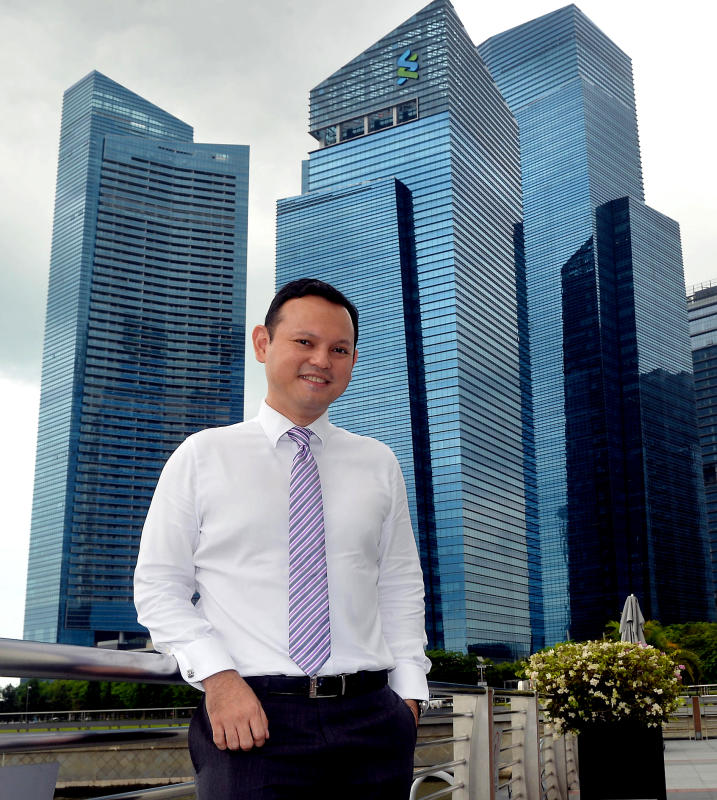Parliament: MPs suggest various approaches to tackle fake news
Sign up now: Get ST's newsletters delivered to your inbox

Mr Zaqy Mohamad (Chua Chu Kang GRC) suggested that the Government can look into what countries, such as Germany and New Zealand, have done to enact laws to take down false content.
PHOTO: BERITA HARIAN
Ng Jun Sen
Follow topic:
SINGAPORE - From imposing fines on online platforms that do not take down fake content, to using university students as independent fact checkers, 11 MPs and Nominated MPs gave various suggestions on ways to tackle deliberate online falsehoods on Wednesday (Jan 10).
Law and Home Affairs Minister K. Shanmugam had moved a motion to convene a select committee, comprising 10 MPs, to look at the issue. The committee will likely consider legislation to tackle fake news, with a Green Paper setting out several actions other countries have taken.
Mr Zaqy Mohamad (Chua Chu Kang GRC) suggested that the Government can look into what these countries, such as Germany and New Zealand, have done to enact laws to take down false content.
Germany's laws allow its government to order sites to remove unlawful content. Systemic breaches can result in fines of up to €$50 million.
"The European Union, UK and France are considering similar take-down laws," Mr Zaqy told the House.
New Zealand takes a different approach, with its Harmful Digital Communications Act allowing the courts to order a right of reply, or to correct false statements concerning individuals, he added.
But MPs also pointed out a variety of solutions, besides new regulations, that could also address the fake news problem.
Said Mr Seah Kian Peng (Marine Parade GRC): "Heavy-handed legislation may backfire on the Government, acting as the judge, jury and executioner of what constitutes credible information. We may end up freezing free speech online."
He suggested that the select committee discuss the responsibilities of social media and tech companies, as well as education efforts for the public to discern what is fake news. These areas of discussion were raised by other MPs too.
Some, like NMP Kok Heng Leun, suggested multiple independent fact-checking bodies.
Said Mr Kok: "To help the public learn to discern truths, facts, and opinions from lies and falsehoods, it is important that there is a high level of transparency when it comes to information that can be shared, especially (when it is) from the authorities."
NMP Mahdev Mohan said a network of fact checkers, which can involve university students and journalists, can be formed to actively correct and report misinformation seen on social media.
He also suggested ad-blocking websites "to reduce or eliminate the financial incentives to generate fake news traffic".
Credible interest groups can also be co-opted to assist Internet platforms, such as Facebook and Google, to meet their fact-checking obligations, said Assistant Professor Mahdev.
"These (fact-checking) networks can be state-driven, such as the local government website Factually, or (consist of) ground-up efforts such as the United State's International Fact-Checking Network or FactCheck.org," he added.
NMP Ganesh Rajaram suggested that the Government consider marshalling social media influencers to get the word out of fake news quickly.
"While we all know that our very own Prime Minister is one of the biggest social media influencers in Singapore because of his number of followers, there are others who also have a wide reach," he said.
Mainstream media outlets can also lead the charge to combat fake news by enhancing its own credibility by providing more "robust and credible news gathering and reporting", said Mr Ganesh.
On education efforts, nearly all MPs chimed in with suggestions on how to boost media literacy and critical thinking by including it in the schools' curriculum.
Said NMP K. Thanaletchimi: "Students (can) learn to pick up cues to uncover misinformation, question misleading sources and resist the temptation of believing simply.
"Eventually, we hope to cultivate a generation with a healthy scepticism on online information."
Mr Henry Kwek (Nee Soon GRC) suggested the the committee commission "detailed and prolonged studies" to understand how Singaporeans gather news and how social media shapes their understanding.
Said Mr Kwek: "A clear understanding of news consumption patterns will be necessary to help us calibrate policy, so that we can balance a healthy discourse with necessary intervention."

